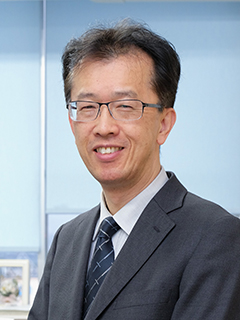Since its founding in 1981, Oita University Hospital has served as the sole national university-affiliated hospital in Oita Prefecture, contributing for over four decades to both regional healthcare and advanced medical services. We provide safe and reliable medical care as a designated advanced treatment hospital, while fulfilling a broad mission as a center for education and research in medicine and nursing.
A distinguishing feature of our hospital is our pioneering commitment to minimally invasive, patient-friendly medicine. From the dawn of laparoscopic surgery, endovascular therapy, aortic stent grafting, robot-assisted surgery, and hybrid procedures, we have steadily advanced these techniques, receiving high acclaim both nationally and internationally. In the field of robotic surgery, in addition to introducing da Vinci-assisted procedures in 2012, we were the first hospital in Kyushu to adopt the Japan-made robotic system "hinotori," which is now being applied across multiple specialties. Furthermore, our department of Gastroenterological and Pediatric Surgery is at the forefront of global efforts in developing intraoperative navigation systems using AI.
Our hospital also plays a central role in infectious disease care in Oita Prefecture. During the COVID-19 pandemic, we led great efforts in the treatment of severe cases using ECMO, vaccine administration, and deployment of healthcare personnel, contributing significantly to both medical care and public health. We also continue to promote advanced basic research on emerging and re-emerging infectious diseases and new drug development in collaboration with the Research Center for GLOBAL and LOCAL Infectious Diseases(RCGLID), established at Hasama campus in October 2021.
At the Clinical Medical-Engineering Center, we are developing novel arterial grafts based on regenerative medicine technologies, pursuing safer and less burdensome therapeutic approaches. As a designated Regional Cancer Hospital, we advance high-quality cancer genomic medicine and provide personalized care informed by genetic data. At the Advanced Dementia Care Center, we are developing methods for early diagnosis and new treatments using PET-CT. In emergency and disaster medicine, our Advanced Emergency and Critical Care Center has established a helicopter-based rapid transport system, ensuring 24/7 emergency care across Oita prefecture. Recognized as a Core Disaster Base Hospital, we bear the responsibility of serving as the "final stronghold" in the event of large-scale disasters, terrorism, or radiological emergencies.
Our entire hospital staff—including physicians, surgeons, nurses, pharmacists, clinical laboratory technologists, clinical engineers, administrative staff, facility managers, and medical students—collaborates to fulfill our mission of delivering "the best patient-centered care," with each member contributing their expertise, individuality, and creativity. We are improving the inpatient environment by renovating rooms to ensure privacy and by introducing a Wi-Fi system, thereby aiming to reduce the burden on patients and families. Outpatient services are also being improved through the expansion of parking facilities and the reorganization of access routes. In addition, we are advancing digital transformation in healthcare (medical DX) and are continuously updating and enhancing the environment of our university hospital.
We strive to be the most trusted hospital in the community. We sincerely appreciate your understanding and support.
April 2025 Kenji Ihara


